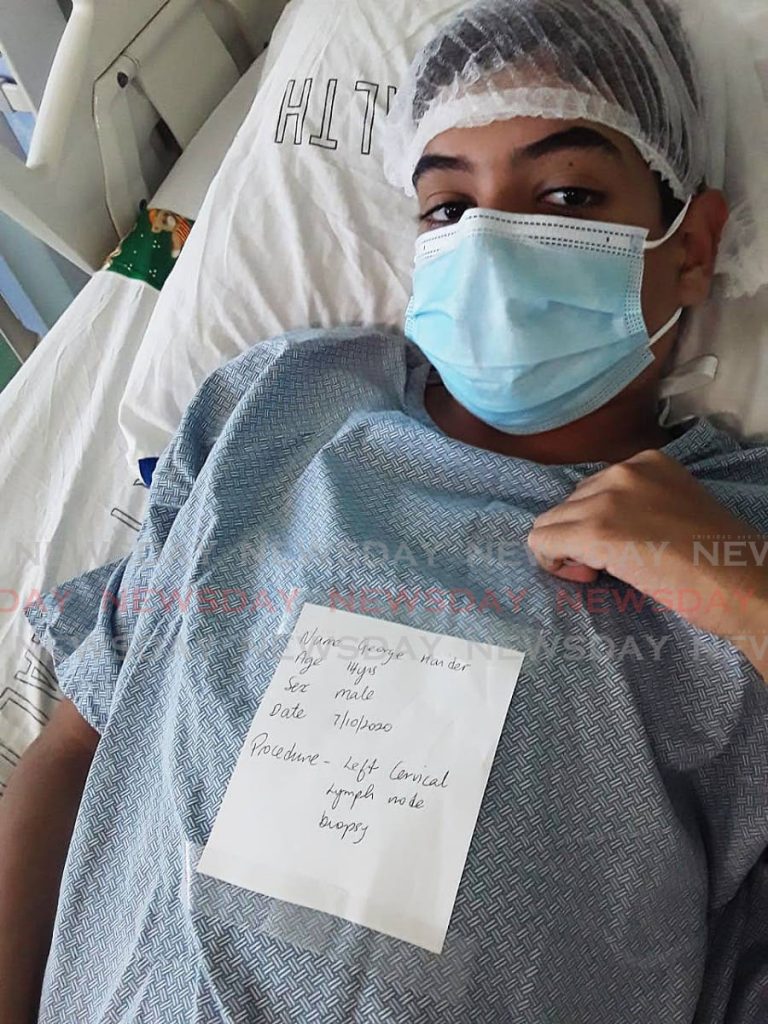Deyalsingh: No free cancer treatment for Venezuelan teen

The free health care accessible to Venezuelan migrants through the state will not extend to providing cancer treatment to 14-year-old George Riad Haidar Maican, Health Minister Terrence Deyalsingh said on Saturday.
Speaking during the Prime Minister’s media conference, in Tobago, Deyalsingh said under a Cabinet note passed in 2019, non-nationals are only able to access a certain level of health care free from the public system.
“Cabinet had instructed me in early 2019 to assess the health care system and the use of the health care system by non-nationals. We went out and did a study of what Trinidadians and Tobagonians were subjected to abroad and in the Caricom region to access free health care. Based on that analysis, a Cabinet note was passed allowing non-nationals like immigrants free access to certain levels of care, that is, accident and emergency, maternity services, but any other type of service, we will not be able at this point in time to accommodate that free. That is a Cabinet decision taken in June 2019 and we looked at what our own nationals are expected to pay for when they go abroad.”
Deyalsingh was responding to a question about Maican who was recently diagnosed with nodular sclerosis, a Hodgkin’s lymphoma subtype. Research shows the blood cell disorder can go into remission with proper treatment. The teenager has been hospitalised at the San Fernando General Hospital (SFGH) for the last four weeks. He has developed swellings on his neck, underarms, and other parts of his body. His father has appealed to the Health Minister and public for assistance in accessing the necessary health care to save the boy’s life.
The policy, available on the Health Ministry’s website says that non-nationals can access emergency medical services including: initial treatment, stabilization and discharge for acute medical conditions such as accidents, injuries, asthma, heart attacks, stroke, diabetic coma; and relevant diagnostics for acute care; and, all population and public health services including: immunization and treatment of communicable diseases, such as HIV/AIDS and sexually transmitted diseases (STDs), and other high-risk infectious diseases (e.g. malaria). The ministry’s cancer care overview says, “all TT citizens are entitled to cancer care and treatment free of charge. Non-nationals must pay for treatment.”
NCRHA CEO Davlin Thomas, on Saturday, said under the national policy, once the clinical assessment implies that the patient is clinically stable, there is a category of elective services that are not provided.
“These are the services they would have been able to acquire in the past. That condition the person in question needs treatment for is clinically stable, it’s not a situation where someone’s life is in jeopardy in the short term but it’s a non-national, they need to seek care at home. There’s a category of care, they could get maternal, childbirth and so on, for some of the infectious diseases, VD etc, because those are public health implications, and emergency services, but we can’t move on to chronic care, which is a reasonable thing, you can’t leave your country to acquire basic services, that’s another zone.”
However, former health minister Dr Fuad Khan said as the boy is a registered Venezuelan migrant, he should be able to access free medical care on the same level as a resident.
“Only if you are a foreign national or someone who is not a legal resident, you have to ask the minister’s permission to allow you access to free medical service. Usually, the minister would say yes. When I was a minister I would approve everything like that once it was necessary. Primary care is one level, secondary is another level, but cancer primary care is giving the medication. With Hodgkin’s Lymphoma, you need chemotherapy, so I think whoever denied him access are treading on some serious medico-legal negligence. When they registered the migrants during the last term, they made a decision in Parliament that NIS should not be paid by the migrants. The reason behind that is that once you pay NIS, you are entitled to NIS benefits, even if you work for one day, so by allowing the registered migrants to be registered, you made them legal for that period of time as a resident of TT. If you did not want them to have access to health care, you had to write that in. Once you didn’t write it in, it is automatically assumed that they will be allowed health care in this country and institutions.”
Khan said he thought the government should be humanitarian and not look at bureaucracy where lifesaving measures are needed.

Comments
"Deyalsingh: No free cancer treatment for Venezuelan teen"